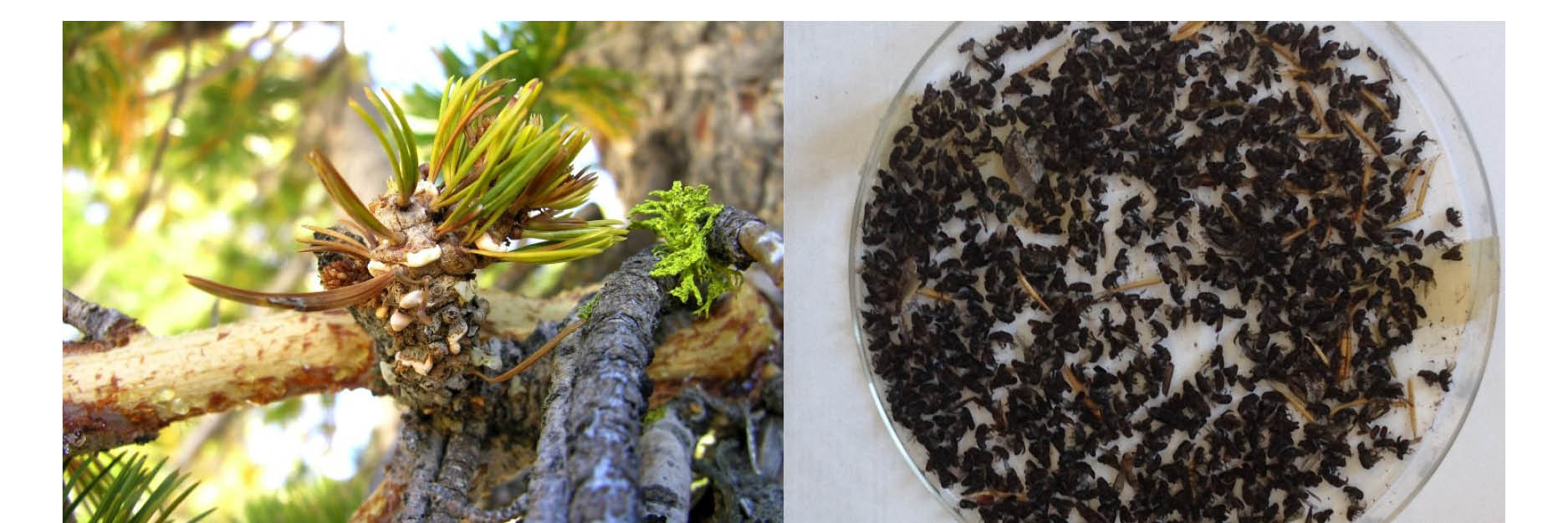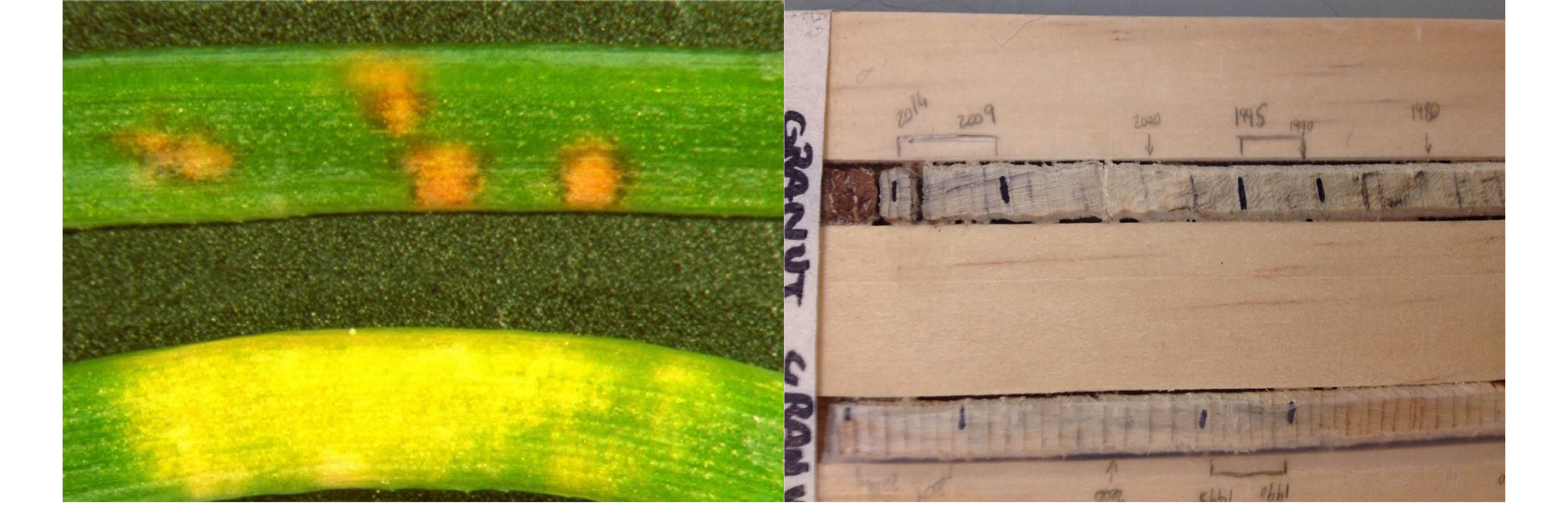

The lab studies a wide range of forest health issues that include biotic (pathogens, insects) and abiotic (drought, fire, fire suppression, land-use changes, air pollution) agents and disturbances. The lab is actively involved in studying the physiological, phenological, and biochemical mechanisms involved in how forest trees respond and adapt to biotic and abiotic pressures. For almost 2 decades, we have continued to study the distribution and incidence of white pine blister (WPBR) on five-needled white pines (sugar, western white, whitebark, foxtail, Great Basin bristlecone, and limber pine), WPBR resistance evaluations, and monitor mountain pine beetle dynamics in California and Nevada.
